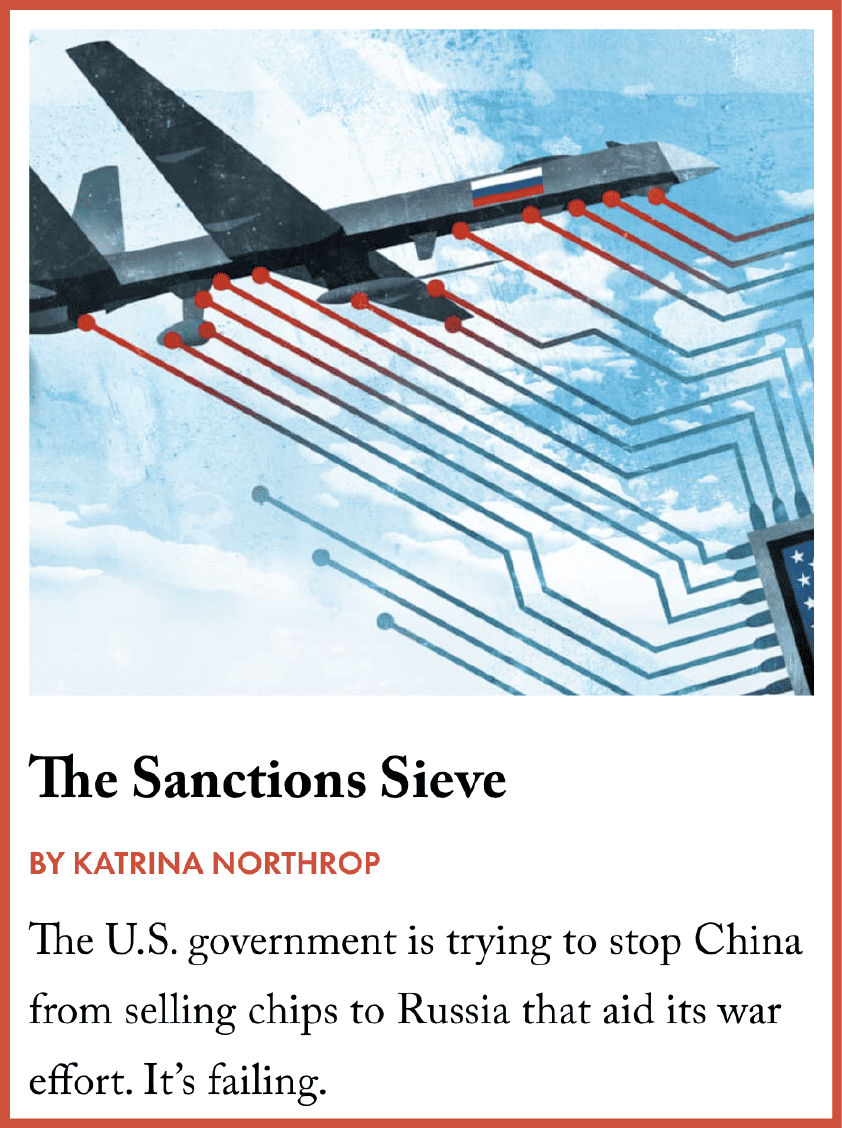Emily Kilcrease is a senior fellow and director of the energy, economics, and security program at the Center for a New American Security (CNAS), the Washington, D.C.-based think tank, where she studies the U.S.-China economic relationship. Kilcrease previously served as a deputy assistant U.S. trade representative (USTR), as a director on the National Security Council (NSC) for international trade, investment, and development, and as the Commerce Department official overseeing Committee on Foreign Investment in the U.S. (CFIUS) work. In December, she published No Winners in This Game, a report detailing a potential U.S. sanctions playbook for China in the case of a future conflict. The report lays out the areas where the U.S. has the most, and least, leverage, as well as the conclusions from an economic policy gaming exercise Kilcrease set up to gain insight into various players’ use of sanctions in Washington and Brussels.

Illustration by Kate Copeland
Q: Why did you decide to do this research and write this report?
A: At CNAS we’ve done a lot of work following Russia’s invasion of Ukraine, looking at the sanctions that were imposed, which in so many respects were unprecedented. They were fast, they were severe, they were so well-coordinated amongst the allies. But even with that effort, it became clear over time that the sanctions were not having the desired effect. They didn’t deter Russia from invading, of course. As time has gone on, it’s become less and less clear that they’re influencing Putin’s geopolitical calculus.
So a very natural question came up: what if we ever had to do something like that with respect to China? If there was a geopolitical scenario where the U.S. and partners wanted to mount a large sanctions response, what would that look like? We intuitively knew that it was going to be massively more complicated. China’s a much larger and more interconnected economy. The idea of trying to craft sanctions strategies that were asymmetrically more painful to China than to the U.S. and that wouldn’t wreak havoc on global markets seemed like a really difficult challenge. But it also seemed like a question that we should start to ask.
What would those sanctions look like? Would they have a deterrent effect? Would they be effective? And how far up the escalation ladder could the U.S. and hopefully its partners, actually go, recognizing that there’s going to be these dual objectives: use the economic tools as much as they could, but not crash their own economies.
Why is sanctioning China so much more complex?

The biggest distinction between the China case and other scenarios is China’s economy. China is a globally significant economy. When you look at the trade relationships it has around the globe, it is a number one trading partner for multiple more countries than, for example, Russia was. If you’re trying to sanction China, you have to take account of the fact that it is just big and highly intertwined with the rest of the world. That means any economic damage that you cause to China will also have ripple effects throughout the globe.
You also have to take account of China’s really substantial economic leverage. It is a manufacturing powerhouse. So how do you think about sanctioning China in a way that doesn’t just cut off all of China’s exports to the rest of the world, including to the United States?
Chinese banks are the largest banks in the world: so if you’re targeting China’s financial sector, you have to think about the impact that that would have on global financial stability and the spillover effects on trade. That’s coupled with the fact that China would have a high degree of resolve to withstand sanctions pressure. Particularly if there’s a conflict around its self-defined core interests, it will have baked in a certain amount of pain from sanctions and decided that it could accept those costs.
| MISCELLANEA | |
|---|---|
| FAVORITE BOOK | Babel: Or the Necessity of Violence: An Arcane History of the Oxford Translators’ Revolution by R.F. Kuang |
| FAVORITE MUSIC | Noche, an album by Sofiane Pamart |
| FAVORITE FILM | The Princess Bride |
| MOST ADMIRED | Leslie Knope |
China’s political system is increasingly centralized and personalized. That means it’s going to be hard to use certain sanctions strategies that are designed to cause bottom-up pressure on the system. The Chinese system just isn’t built to work like that, intentionally so. Both those economic and political dynamics mean that it’s going to be really hard to overcome Chinese political resolve to withstand sanctions pressure, while also trying to mitigate the economic effects of sanctions on the rest of the world.
There’s another layer, which is if there is sanctions damage caused to China’s economy, who gets blamed for that? Here you have to look at the control that the party has over information channels within China’s domestic system, its propaganda ability. There is a decent chance that if there was a conflict and associated sanctions, both of which would have economic costs, that there certainly would be efforts within the political system to blame the United States, or Taiwan if it were the aggressor.
You created a framework for the efficacy of sanctions on various industries. Tell me how you developed this rubric?
We were looking at the types of strategic economic activities that would be relevant for China to sustain a military campaign. You can look at how the U.S. has used sanctions in prior contexts to get a sense of what those strategic sectors are, and how sanctions have been applied to try to put pressure on those areas of strategic economic activity.
We defined three broad categories of likely sanctions efforts, based on the policy objective: first, to deny China’s military access to key technologies, and second, to deny China key commodities, namely oil and energy, that are important for military operations. There may also be a third, to put broader macroeconomic pressure on a target — recognizing that if a country’s economy is doing great, then the government will be able to continue to financially sustain the military campaign. There’s this element of needing to degrade an economy overall, if you really want to degrade a country’s ability to sustain a military campaign.
| BIO AT A GLANCE | |
|---|---|
| AGE | 40 |
| BIRTHPLACE | Kingston, NY, USA |
What exact conflict scenario are we talking about? Is it a full out war between the U.S. and China, is it a scenario where China, for example, is being incredibly aggressive towards Taiwan but not invading in a black and white fashion?
For this piece of research we were much more focused on establishing as a baseline where the United States and China each have leverage and how that leverage might be used. And the reason that we don’t get into specifics is because as soon as you think about what sanctions should we apply in, for example, a Taiwan embargo scenario, you immediately have all these additional questions around how did that conflict start? Was Taiwan the provocateur? Was it China?
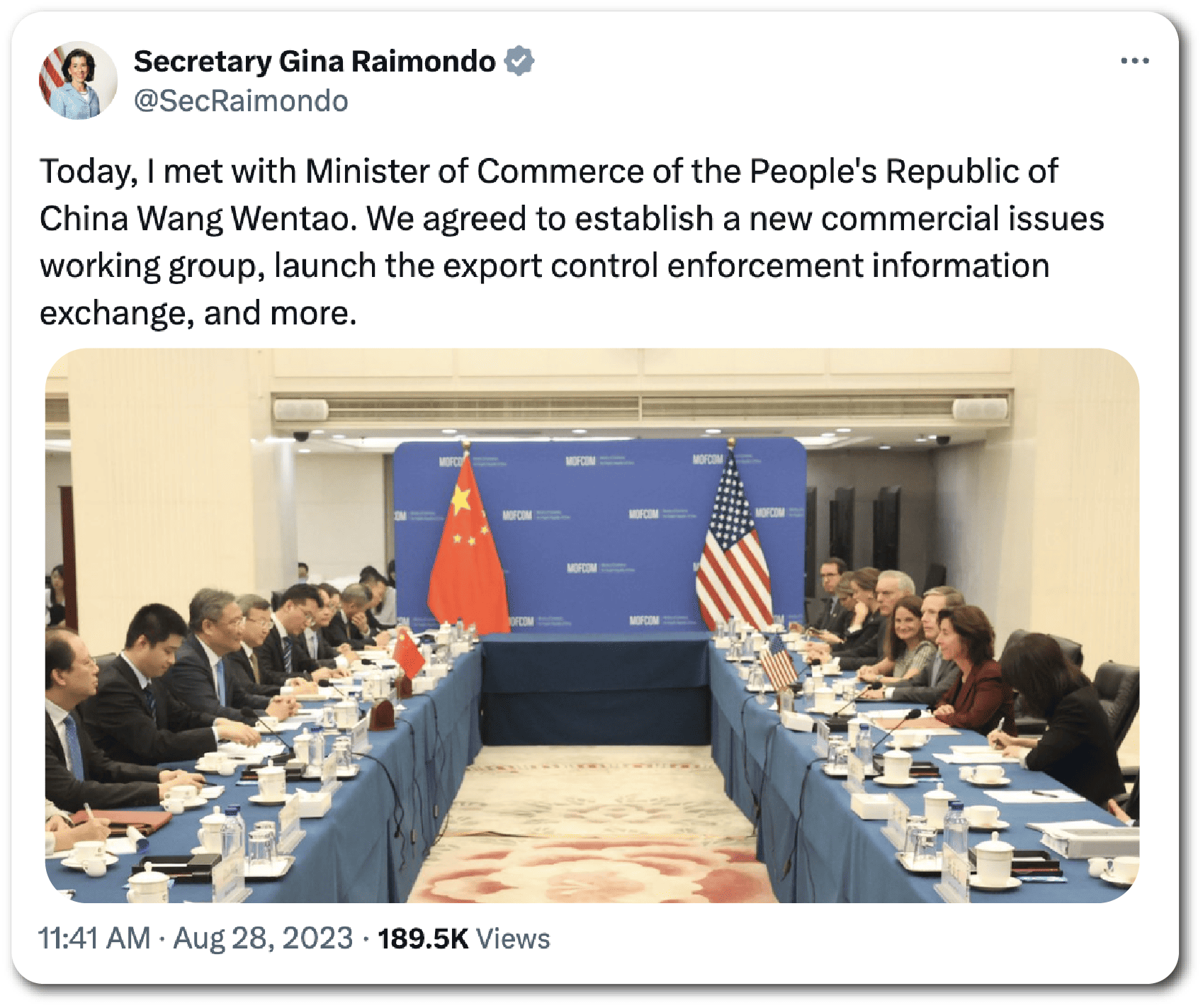
We’re quite careful in the report to say that some of the options that we’re talking about, for example, full blocking sanctions on major Chinese financial institutions, are very severe measures, and they should only be implemented in a conflict scenario. They are in themselves essentially an act of economic warfare. There’s other measures, like certain types of technology control measures, which we’re already doing today and are increasingly being used outside the context of a conflict.
This gets to the broader question of what are the goals of sanctions? Is it to degrade military ability or is it to exact a punitive measure on China’s entire economy?
You have to be precise about what types of measures you’re talking about. When you’re talking about export controls, for example, your key focus is on degrading military capabilities. But there’s a broader question about timing here: when do you impose these sorts of measures? Are they most impactful in the deterrence phase?
Ultimately the conclusion I came to is that sanctions can be most useful over an extended deterrence period. Once you get to the point that you are implementing some of these measures, particularly the ones on the more severe end of the spectrum, you’re not doing those measures until you’re already in a conflict. You have already lost the deterrent value of those measures. So there’s a need to be signaling, there’s a need to be demonstrating intent and credibility and resolve well in advance of a conflict to impose those measures. And so that’s a key finding of the report: the U.S. has a lot of work to do to bolster the credibility of its sanctions threat because that’s what it can do in the deterrent phase, where sanctions can have the most effect.
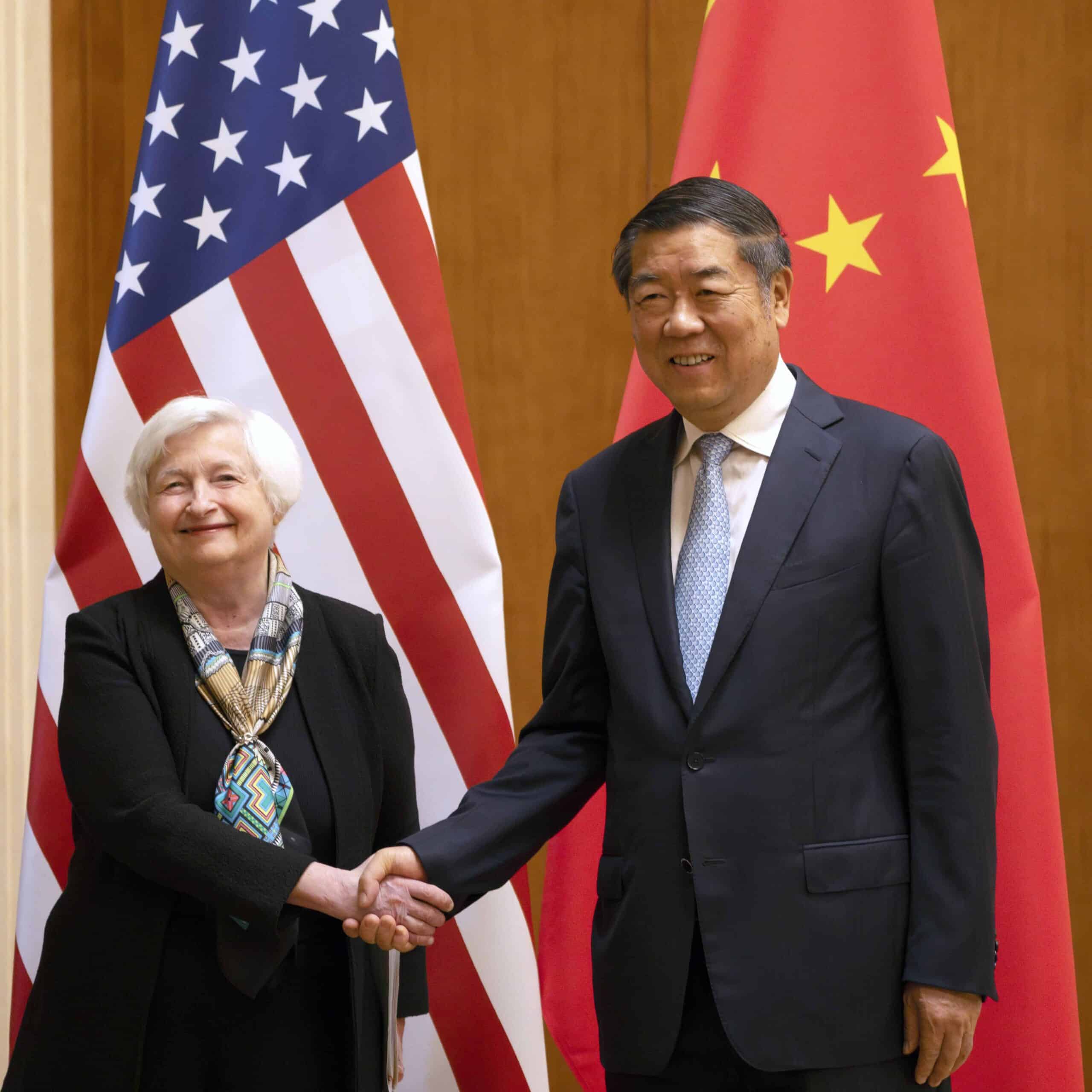
How do you build credibility?
One of the most important things that we can do is not use financial sector sanctions prematurely. When you look at how much leverage we have overall, it’s fairly mixed, [but] we’ve got real strength in the financial sector; and we need to preserve that. By doing so, we can enhance the credibility of the sanctions threat. If we start to use those sorts of sanctions earlier on, all that’s going to happen is China’s going to develop adaptation and evasion abilities, because that’s what sanctioned states always do. There’s an element of strategic restraint involved in building credibility, preserving the leverage that we have over China because of its integration into the global financial system.
Now there’s a little bit of nuance there, because building credibility means that at some point we may need to start using some of those sanctions when Chinese behavior is clearly provocative and acting against U.S. interests. You can look at U.S. concerns around Chinese support for Russia’s war machine, for example, and the reams of trade data about electronics flowing from or through China to Russia. And you could ask whether that is a scenario where the U.S. should be thinking about harsher financial sanctions [on China] because of the credibility issue. Also in circumstances where the U.S. has said time and time again that China needs to not be doing something, and then they keep doing that thing, and we don’t issue sanctions, that does raise important questions about credibility. So it’s getting this balance of largely acting with restraint, because we want to keep China integrated into the financial infrastructure, while also showing a willingness to use those sanctions when it seems called for.
The challenge that China faces is that they have their own structural constraints that are going to prevent them from fully sanction-proofing their economy.
The last piece of this is signaling, to the extent we can, that the U.S. wouldn’t be acting alone. There needs to be G7 coordination — ideally broader than that. If there is genuinely this sort of political resolve in other capitals as well, that needs to be signaled to China because that will have a much more kind of credible deterrent effect if it’s not just the U.S. appearing to be the only ones willing to implement these sanctions.
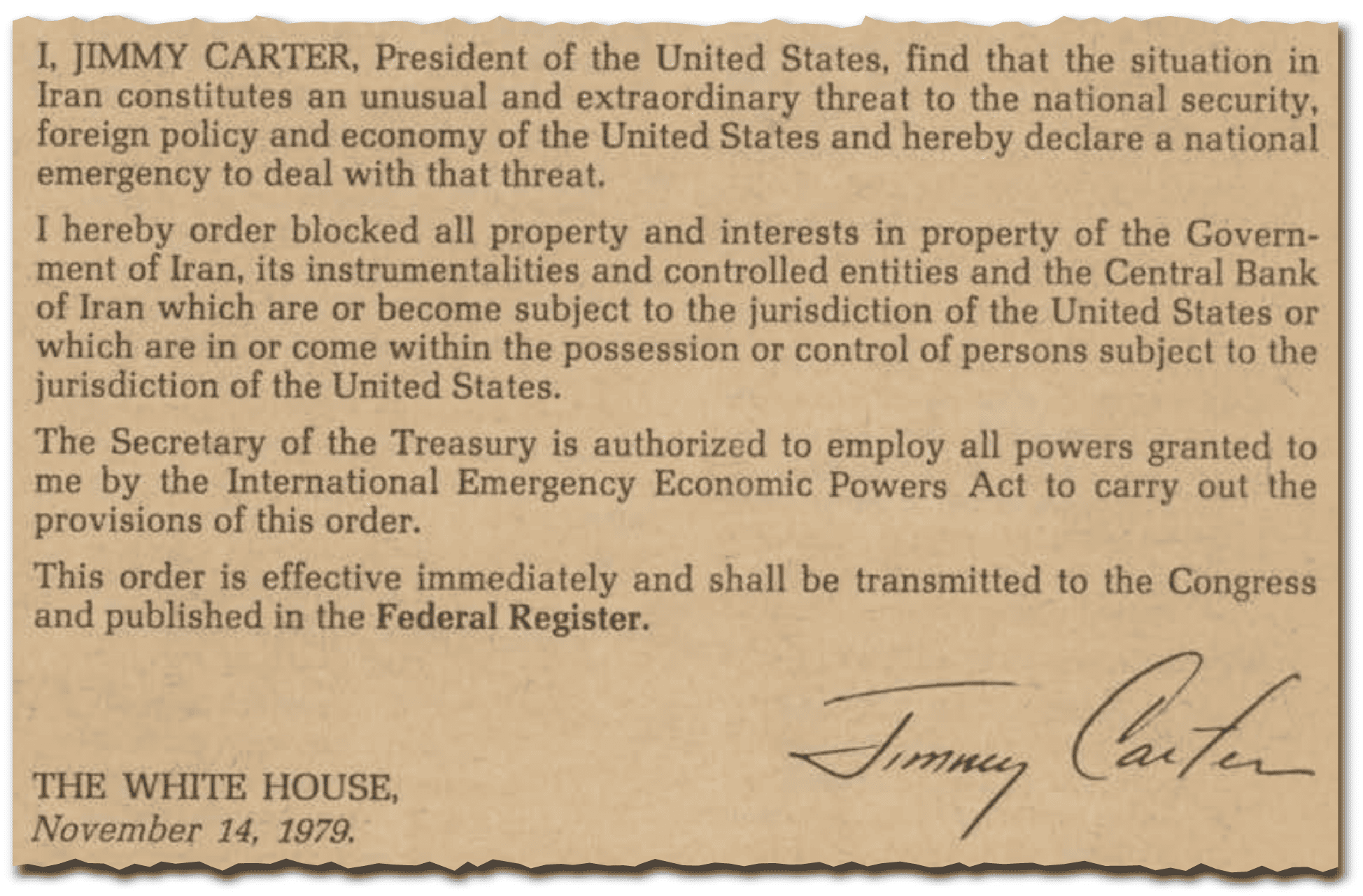
Can you lay out the places where the U.S. has the most and least leverage for sanctions?
Clearly the area where there is leverage is in the financial sector. The global financial system runs on U.S. dollars and a lot of it runs through U.S. financial institutions. That gives the United States a tremendous amount of leverage in the global economy that it can and has used for sanctions purposes in, for example, Russia and Iran.
It’s much more complicated when you look at pretty much any other sector. Take the chip sector. There’s been loads of conversation around U.S. and partner country choke points in the chip sector because of U.S. and Japanese and Dutch firms’ dominance in tooling and in design software. But if you zoom out and look at the entirety of the chip sector and the ability that China would have to retaliate, they could weaponize their own role in back-end packaging, in final electronics, their growing share of legacy chips. So even in that one sector, where the U.S. thinks it has some advantage, it’s actually counterbalanced by China’s own substantial ability to impose costs on the United States in retaliation. That pattern is true in most of the major technology areas that would be strategically relevant in the conflict scenario: U.S. leverage is far more mixed than people realize.

It’s going to be extraordinarily difficult for the United States, even with some of its closest partners, to use sanctions to deny energy access to China. The U.S. is a major liquefied natural gas exporter to China, but when you look at the broad range of energy sources that China uses today, and that would matter in a military scenario, you quickly realize that China has access to oil from a large range of suppliers, many of which are in countries that will not align with the U.S. on sanctions — the Gulf States, for example, or Russia. And so the ability to try to choke off that supply is going to be really minimal.
Tell me how you set up your economic policy game?
We’d done all this research to identify points of leverage, but then we wanted to get a sense of how countries would actually use leverage, and how they would retaliate in more of a dynamic situation. Gaming is a really good methodology for trying to gain insights into those sort of iterative dynamics, with the caveat that games are not predictive.
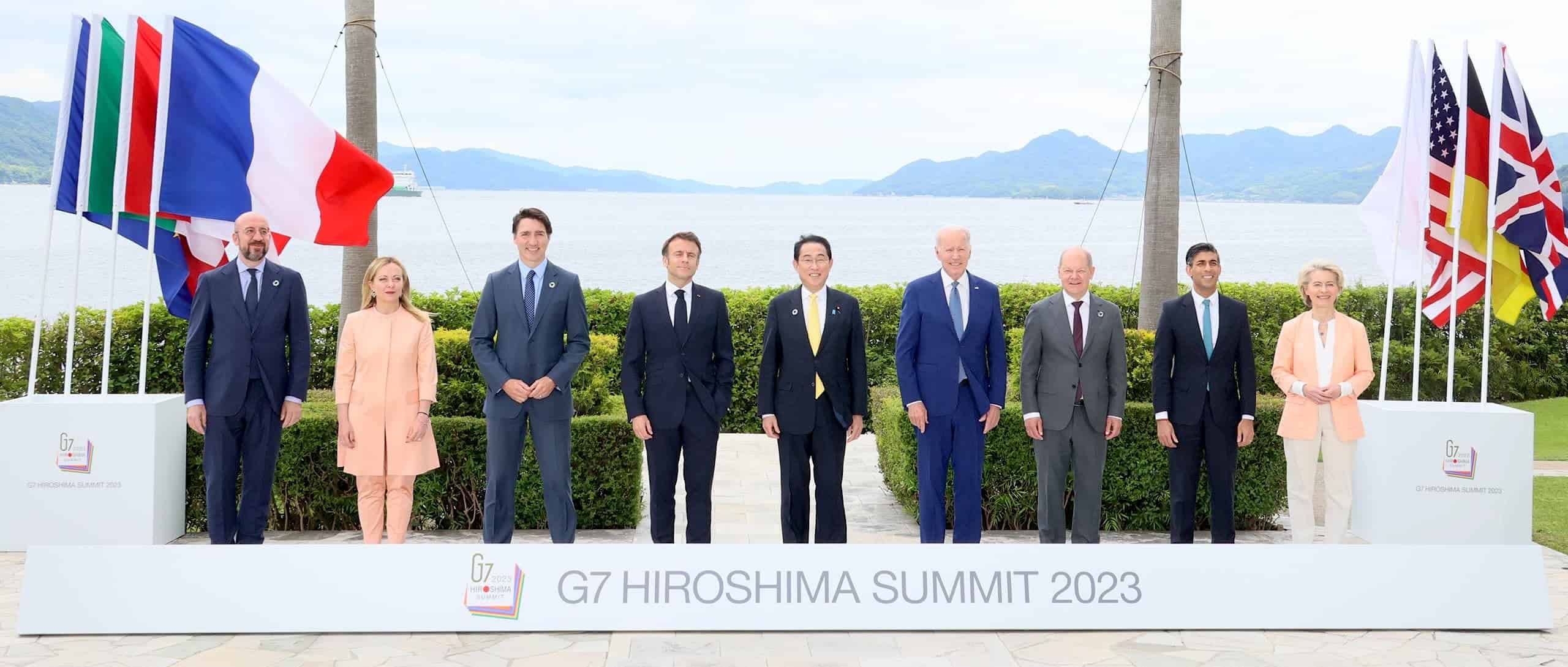
We set our game up as a Taiwan scenario, set in 2030, [assuming that there would be] stable political leadership across all of the G7, and that the war in Ukraine had been concluded, economies were healthy, inflation was low, and the G7 had been coordinating and strategizing on sanctions for a couple of years. We had players who represented macroeconomists, export control and technology experts, private sector representatives, geopolitical analysts, trade specialists. The play was limited to only economic actions, so these country teams could only do what economic agencies would be allowed to do under their own normal authorities. We ran the game once in Washington D.C. and then once in Brussels because we’re very keen to understand how European players would react.
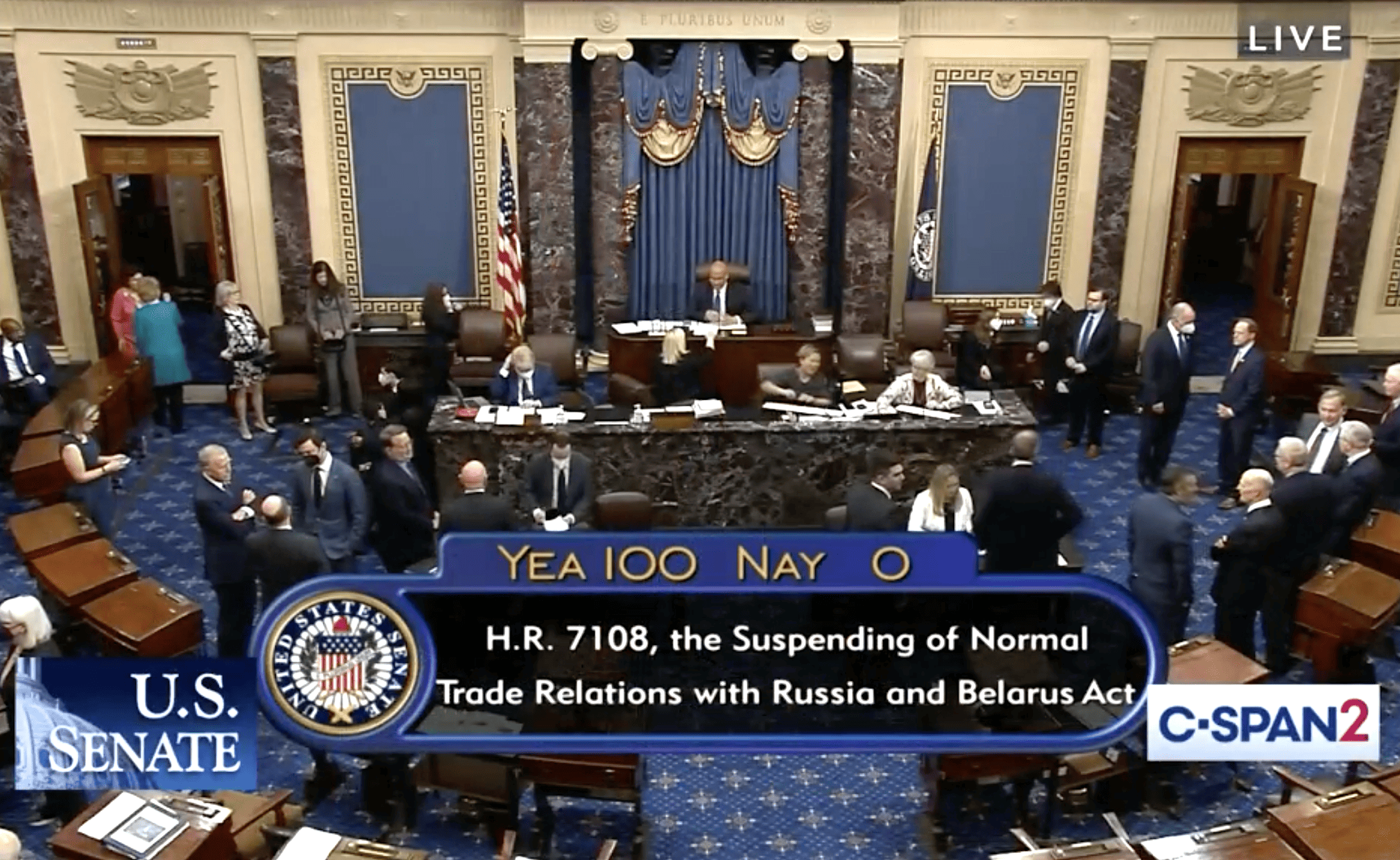
The key tension that came up in both instances of the game was that players didn’t see much value in limited sanctions. By the third turn of the game, which was structured to be a day before a conflict over Taiwan fully erupts, the U.S. and its partner teams had escalated to Russia-plus style sanctions, with full trade embargoes, full blocking sanctions on major Chinese banks — because that’s what they thought they needed to do in order to really knock China off course.
The thing we took away from that is that there’s a tension between what players thought that they would have to do to influence Chinese decision making and what [they thought] would actually happen in real life. As soon as we started digesting the results of the games, the players quickly expressed that they didn’t feel like they had any choice but to go all the way up the escalation ladder, [but] there was skepticism that governments, under real world conditions, would accept the high levels of risk and uncertainty that doing so would entail.
In the game, because of the time frames that we put in place, they didn’t have to live with the long or even short term economic consequences of what those sanctions actions would mean for their own economies. In the real world, governments would have to live with those consequences, and they may act more cautiously than what we saw in the games.
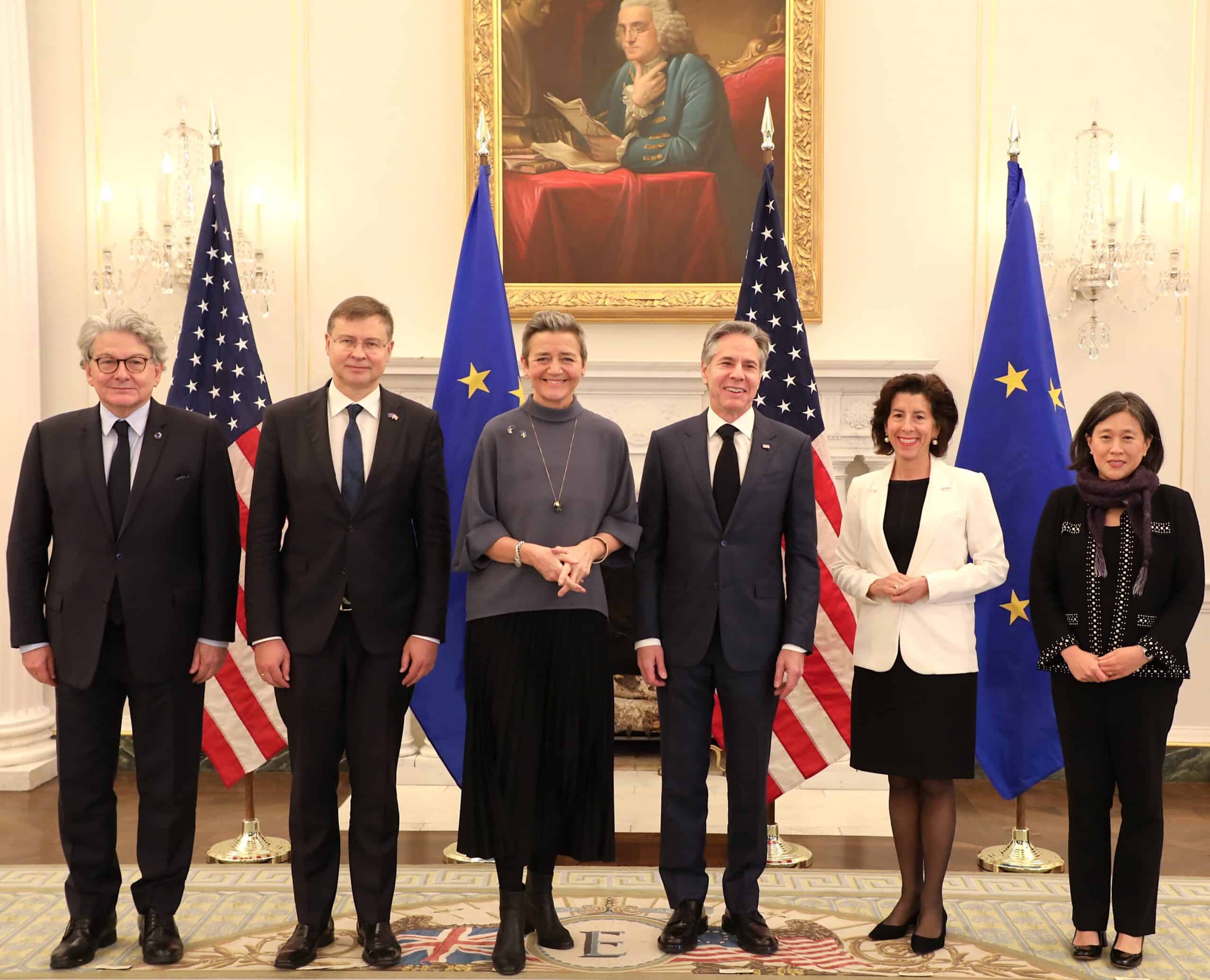
Did anything else surprise you about the conclusions of the game?
We were expecting more variation and perhaps more hesitancy from the European players. But I think a lot of them are learning hard lessons from the Russia context in terms of the need to really use biting sanctions and being very concerned about weaponized economic ties. There’s still a long way to go in Europe, particularly when you look at it on a country by country basis, but that conversation is maturing. That was something that was slightly more heartening to see come out of the research.
What would the repercussions be on the U.S. financial system if the U.S. went all the way up the escalation ladder on financial sanctions?
The Chinese banks are the largest in the world. So if you are issuing sanctions with an attempt to cut them out of the global financial infrastructure, you do have to worry about significant turmoil in global markets.
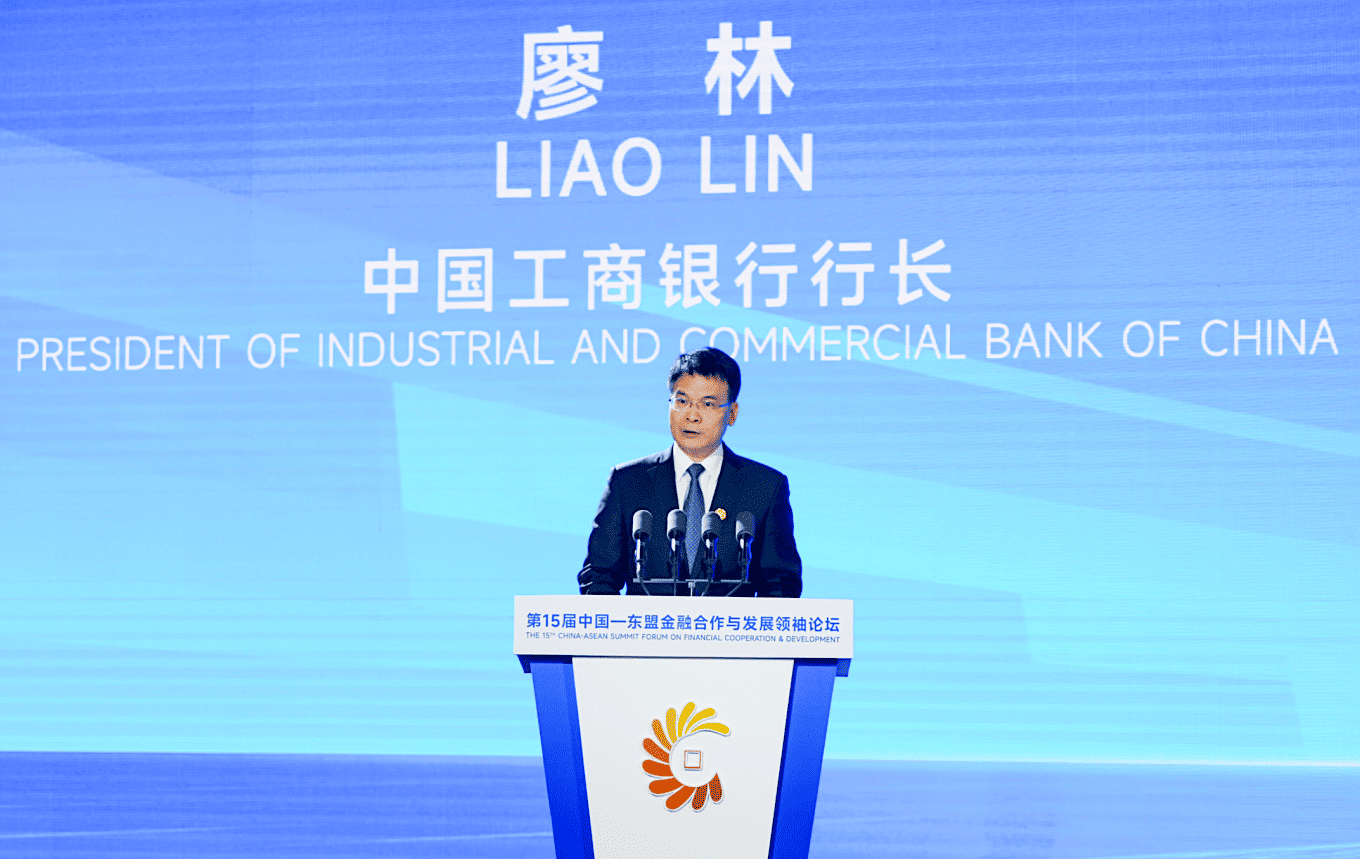
What would that mean for the United States? You’re going to have some of the largest banks in the world no longer being able to transact in dollars. So dollar markets are going to start to become stressed. You’re also going to have spillover effects on China’s ability to trade with the rest of the world. If they don’t have banks that can process transactions, they’re not going to be able to engage in transactions that involve international trade. So even if you’re just going after the banks, all of a sudden China’s manufacturing sector isn’t going to be able to get goods out to the rest of the world.
You can also consider what that would mean for U.S. government security. China is a large purchaser of U.S. government debt. Even setting aside the question whether they would dump their U.S. government debt holdings, if they are no longer a reliable purchaser of anything new in terms of U.S. treasuries or U.S. agency bonds, then all of a sudden the U .S. doesn’t have a secure and robust diverse supply of buyers. That would increase bond yields, in turn likely making everybody’s mortgage more expensive.
Sanctions, when used effectively, should not be the leading edge of foreign policy response. They have to be integrated into a broader integrated strategy.
You can see how these effects would start to accumulate, and that’s just from sanctions on the banks. All of these would be extraordinarily difficult to control and prevent, because you’re just reaching into the global financial system and taking some of the biggest players out. That’s just going to throw everything out of balance.
Are people in the U.S. government doing this type of gaming?
Folks in the government are taking this seriously. The challenge is that they have a day-to-day job that they are busy implementing, which includes sanctions on Russia, and increasingly sanctions on Hamas, and all the other sanctions programs and export controls, like the current export controls on China.
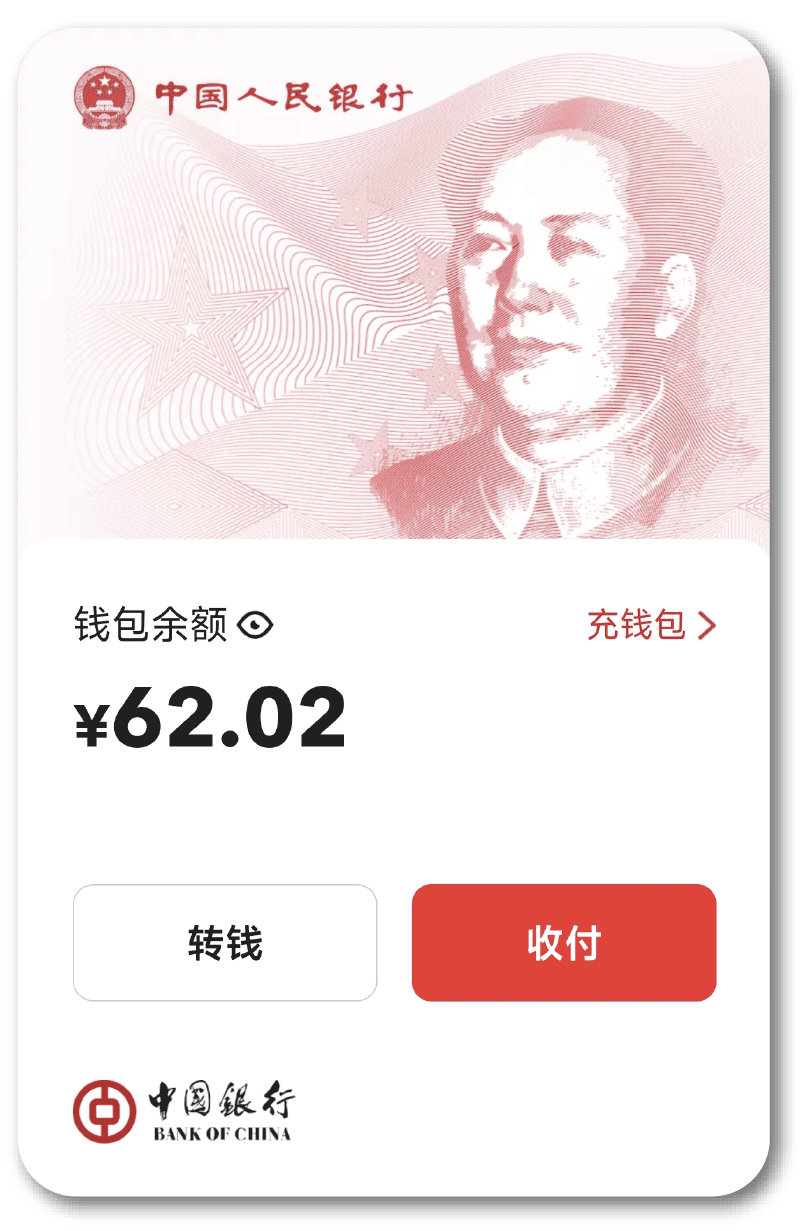
There needs to be more of an institutionalized strategic planning process for the sanctions community in the economic agencies so that you’ve got people who can take lessons learned, but aren’t doing the day-to-day implementation of ongoing sanctions programs, to really do this sort of long-term thinking.
Is China doing these games?
I wouldn’t be surprised if they are. They’re certainly aware of their vulnerabilities in a lot of these spaces. So much of their technology policy is based on reducing their reliance on foreign sources. I think they’re also keenly aware of their potential vulnerability to financial sector sanctions. That may be part of the driving motivation for China’s development of its own digital currency, although to be clear, that is a very small effort right now.
The challenge that China faces is that they have their own structural constraints that are going to prevent them from fully sanction-proofing their economy. If they are going to continue to have capital controls, for example, and not have a fully convertible RMB, it is going to be difficult for them to transition away from the current structure of the global financial system, which relies on the dollar. They benefit tremendously, from an economic perspective, from that integration into today’s global financial infrastructure.
I interviewed Nicholas Mulder, an expert on the history of sanctions at Cornell University, and one of his main arguments is that if you implement sanctions, you should lay out clear actions which would result in their removal. What do you think of that critique?
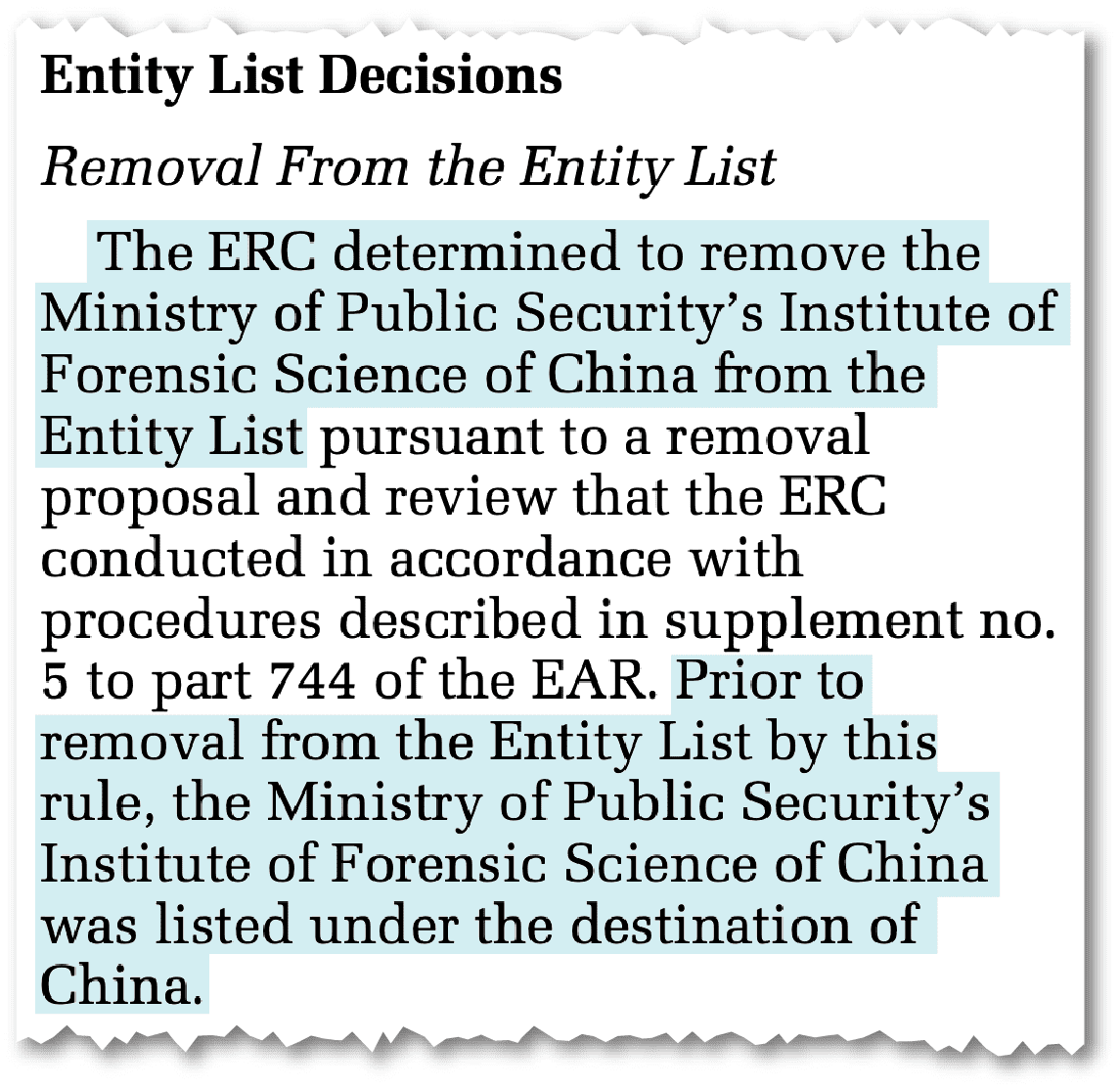
It’s a really fair critique, and it is absolutely true that sanctions tend to be very sticky. Once they’re put on, it’s politically difficult to remove them. And if you are thinking about a genuine conflict scenario, where U.S. lives have been lost, it would be extraordinarily difficult to [simply] remove sanctions after the hostilities have stopped, because that would become a very emotional and political issue. There’s more research and analysis needed around the use of sanctions to increase their coercive nature and to overcome these challenges, including how we use sanctions in pre-conflict periods. If sanctions are never going to be removed, then they are inherently not coercive. They’re just punitive at that point.
There’s a related problem that’s coming up, which is this idea of an axis of the sanctioned: as more and more countries come under heavy sanctions, clearly they are collaborating more and more with each other. Despite all the problems we have with the PRC currently, in particular with Chinese firms supporting Russia, they still want to be part of the global economy. But if they swing into this shadow economy because of heavy U.S sanctions, I don’t think we’ve started to contemplate what that would look like, and what that would mean for U.S. geopolitical power over the long term.
So how about enforcement? We are talking about crafting sanctions well, but how about enforcing them?
If we’re in that sort of posture where there’s a conflict and we’ve imposed severe sanctions, the amount of surge capacity that the government would need to implement and enforce these sanctions appropriately is pretty huge. There’s going to be a huge need for engaging with the private sector, figuring out what parts of the economy you broke through sanctions, fixing it, providing guidance, and then doing the enforcement work. We’re talking about an exponential scale of resources that you would need if you’re really talking about large scale sanctions on China.
It also does depend on the types of sanctions tools that are used. Some of the innovations that we’ve seen in the Russia context are informative. We’re using new tools there like oil price caps or the vast expansion of extraterritorial controls on chips and microelectronics. We’re learning how hard it is to enforce those very clever sorts of controls. These are all happening in markets where the U.S. doesn’t have full control or choke point ability over the entirety of the supply chain. That’s going to be a lot of those kinds of markets in the China context.
What if sanctions are not the right tool? Given all the challenges we are laying out, is it possible this is just not the right way to address this type of conflict?

I one hundred percent think that’s possible. And even likely. I do think it’s true that sanctions alone will not deter China, or force it to halt an invasion of Taiwan or anything like that.
But that’s almost always been true of sanctions. Sanctions, when used effectively, should not be the leading edge of foreign policy response. They have to be integrated into a broader integrated strategy. And so then the question becomes, not can sanctions do this job alone, but how can we use the sanctions tools that we have and the economic leverage that we have to support the broader objectives at a national level?
And it’s important to calibrate expectations appropriately too. We saw in the Russia context, there was so much rhetoric around the sanctions when they first came out of people saying, we’re going to crush the rest of Russia’s economy and tear down their war machine. And of course that didn’t happen. We just need to be very realistic about what sanctions can and cannot achieve and recognize that sanctions alone will definitely not do the job.
What are your major recommendations from this research?
Emily Kilcrease speaks during a Financial Services Committee hearing on ‘Strengthening CCP Sanctions’, January 30, 2024. Credit: GOP Financial Services
The single most important thing is probably the most boring thing, which is the institutionalizing the strategic planning process. It’s not the plan, it’s the planning. It is so tremendously difficult to predict how a sanction scenario of this complexity is going to go. Just having the government capacity to regularly be gaming out different scenarios is important, trying to put more and more analysis around these questions and doing it across government agencies and with international partners. There’s just a huge, huge need to intensify the efforts that are already ongoing.
There’s an affirmative part of the recommendations as well, which is that we’re fundamentally talking about an abrupt loss of access to the China market. We have to be really clear eyed about the fact that that will hurt U.S. competitiveness long term. And we need to be thinking about how, ahead of time, we can mitigate some of that impact. And so I include in the recommendations the idea of economic security agreements where there’s a much more formalized and intense way to work with partners to ensure resiliency in our supply chains and to align thinking on economic security issues. And to think about how we can maximize shared market access and shared economic leverage in a much more meaningful and deep way, which would be absolutely essential as a mitigation measure if we were in an actual scenario where all of a sudden the China market is no longer available.

Katrina Northrop is a former staff writer at The Wire China, and joined The Washington Post in August 2024. Her work has been published in The New York Times, The Atlantic, The Providence Journal, and SupChina. In 2023, Katrina won the SOPA Award for Young Journalists for a “standout and impactful body of investigative work on China’s economic influence.” @NorthropKatrina

